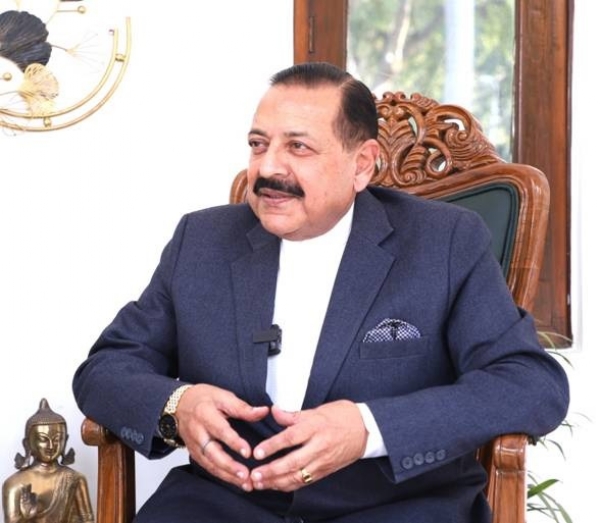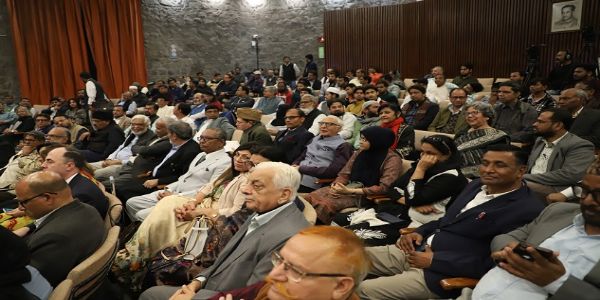
New Delhi, 19 February (HS): Union Minister of State for Science & Technology and Earth Sciences (Independent Charge) Dr. Jitendra Singh said today that India is no longer just a follower. It is setting global standards and providing leadership in various fields and pioneering innovations. He highlighted the remarkable progress made by India in the fields of space, biotechnology and nuclear energy etc. in recent years and said that the country has established itself as a major player on the world stage.
Dr. In a statement issued here today, Jitendra Singh said that there has been an unprecedented transformation in India's space sector, with an increase in ambitious missions and international collaborations. The Space Docking Experiment (SPDEX) is a testament to India's technological progress, which will pave the way for future space missions including Gaganyaan, Chandrayaan-4 and the Indian Space Station, India's upcoming International Space Station.
He said that the country has successfully launched 433 foreign satellites, of which 396 were launched in the last decade, generating revenue of 157 million dollars and 260 million euros from 2014-2023. The historic success of Chandrayaan-3, which made India the first country to land near the Moon's South Pole, has put ISRO at the forefront of lunar exploration. The world's leading space agencies including NASA are now awaiting India's findings from the Moon's South Pole, which is a very significant achievement and underlines the country's growing dominance in space research.
Discussing India's pioneering role in biotechnology and bioeconomy, he said that India has become the first country to develop a DNA-based Covid-19 vaccine and this reflects the country's pioneering role in vaccine research and development. In addition, India has introduced the first herpesvirus vaccine for cervical cancer, strengthening India's position as a leader in preventive healthcare. India's bioeconomy has grown from $10 billion in 2014 to nearly $140 billion today and is projected to reach $250 billion in the coming years. The number of biotech startups was only 50 in 2014 and has now increased to nearly 9,000, making India a global hub for biotech innovation. India now ranks third in the Asia-Pacific region and 12th globally in bio-manufacturing and its influence in the region is growing rapidly.
Dr. Singh said that ISRO and the Department of Biotechnology have signed an MoU to advance space biotechnology research, which focuses on growing plants in space to sustain long-term space missions. Space medicine and the study of human physiology in the planetary environment is becoming an important area of research and India is now setting global standards rather than just following them. India's nuclear energy program, once viewed with suspicion, is now recognized for its peaceful and sustainable ambitions. The country has set an ambitious target of 100 GW of nuclear power by 2047, which aims to reduce carbon emissions by 50 percent, a commitment that is influencing global climate strategies. The world has now adopted India's nuclear policy, envisioned by Homi Bhabha for peaceful purposes, as a model for responsible energy development.
He said that India's scientific achievements are getting global recognition and now our country ranks fourth in the world in terms of scientific publications. It is estimated that by 2030, India may overtake the United States to become the world leader in scientific research.
He said, The clock has turned 360 degrees wrongly. First we were learning from others, now the world is looking at our side. The exchange of knowledge is happening both ways.
Hindusthan Samachar / Jun Sarkar








